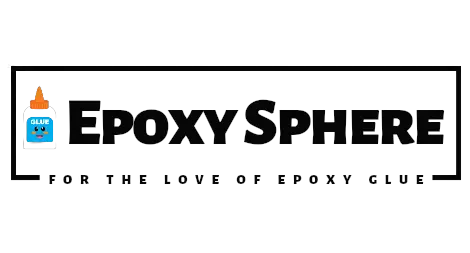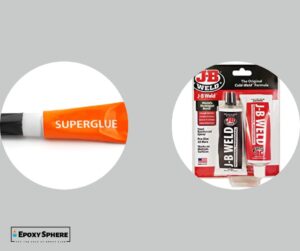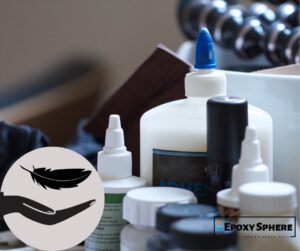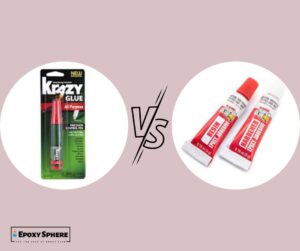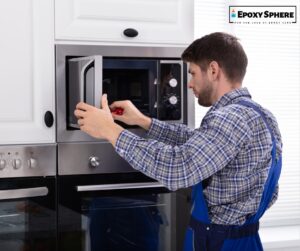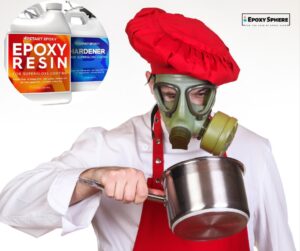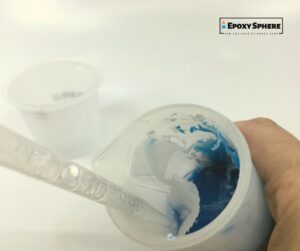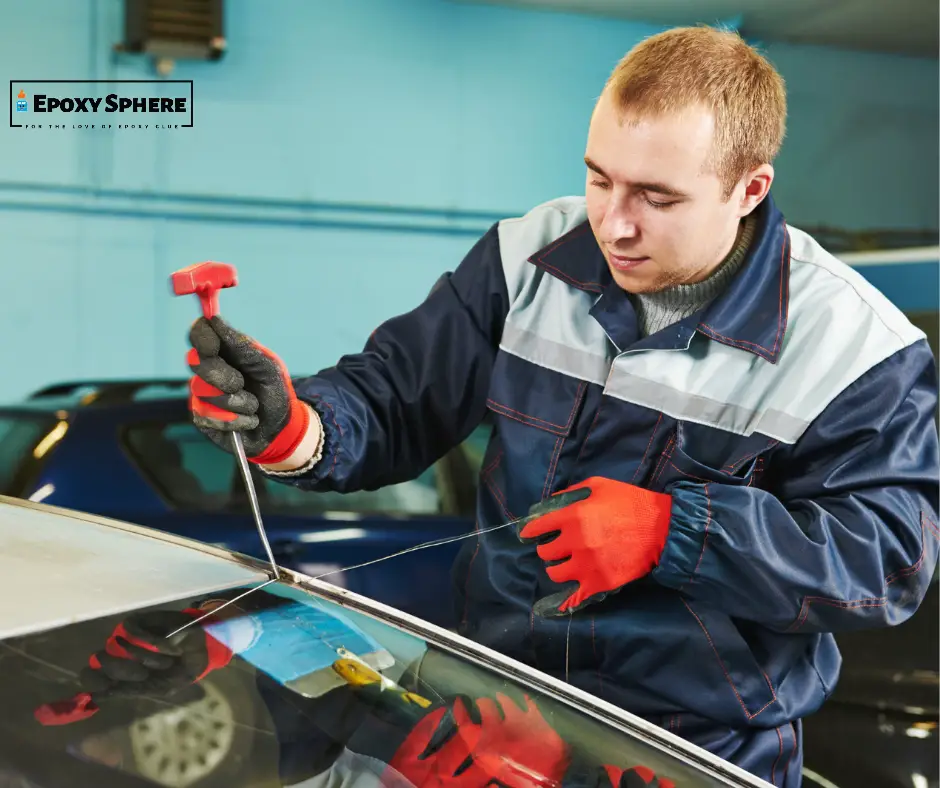
While epoxy can be a great adhesive, it is sometimes necessary to “how to get epoxy glue off glass?” we use Epoxy adhesives for a wide variety of applications, and we can apply the glue via many techniques.
From liquid epoxies that cure with heat to rubber cement that bonds with a simple touch. Epoxy holds well when it gets the chance. However, some jobs require that you take the epoxy off the glass.
If you’ve ever worked with epoxy glue or any adhesive that quickly hardens, then you know how annoying it can be to get them off your fingers after you’ve finished your project. There are a few simple ways to get epoxy off the glass, here’s how.
How To Get Epoxy Glue Off Glass? The Easy Method.
One of the best ways to rid your glass of epoxy glue is by using acetone. Use the steps below to get it done:
1. Prepare the Surface
Before trying any methods of removing epoxy glue from glass, make sure that the surface has been properly prepared. Clean off any dirt or debris with soap and water, then wipe down the area with an acetone-based cleaner to ensure that there are no oily residues left behind. Once you have cleaned off all traces of oil and debris, allow the surface to dry completely before proceeding further with your repair job.
2. Apply Acetone
Acetone is one of the most effective solvents for removing epoxy glues from surfaces such as glass and plastic. Apply a liberal amount of acetone onto a clean rag or paper towel and rub it onto the surface where the epoxy was applied until all traces of glue are gone. Do not use too much acetone or you risk damaging your surface. Allow your acetone to dry completely before proceeding to step 3 if necessary.
3. Use a paper towel to wipe off any remaining glue from your glass.
Soak a paper towel in water or use it ordinarily to wipe off any excess glue on the glass surface. This is to ensure a smooth finish and clean surface. Repeat the process until all the glue is completely wiped off.

Other Ways To Get Epoxy Glue Off Glass
The following are other ways to get epoxy glue off your glass surface:
1. Heat
Heat the surface first, then wipe it off with a soft cloth. The heat will loosen up the grease and make it easier to scrape off. If you do not have another tool handy, you can also use a hairdryer or heat gun on low settings to heat the glass and loosen up the grease.
2. Using rubbing alcohol
Rubbing alcohol is a handy cleaning product that you can use in many different ways. You can use it to clean stains on the floor, remove paint from walls and even clean your windows. The great thing about using rubbing alcohol as a solvent to remove epoxy glue from glass is that it works really well and there are no risks involved.
All you have to do is pour some rubbing alcohol into a bowl or cup, dip a cloth into it and then rub it over the affected area for about three minutes. After that, wipe off the excess with a clean cloth and rinse under running water until all traces of the epoxy glue are gone from your window pane or mirror.
3. Wash with baking soda
Use baking soda to help loosen up the epoxy. Mix 1 tablespoon of baking soda with 1 quart of warm water in a spray bottle and shake well before using. Spray this mixture onto the surface of your item until it becomes foam-like, then let it sit for 5 minutes before scrubbing away any remaining glue residue with an old toothbrush or sponge. Rinse thoroughly with warm water once you have removed all traces of the adhesive material.
Precautions For Using Acetone To Get Glue Off Glass
To avoid hazards or accidents while using acetone to remove epoxy glue from your glass, ensure you take some precautions:
1. Put on Gloves
You should always wear gloves when working with acetone because it can irritate your skin and eyes. Acetone will also dry out your hands over time if you are constantly exposed to it without gloves or other protective gear. Ensure you wear gloves especially if you know you have shaky hands that can accidentally spill some solvents on you.
2. Make sure there are no open flames near where you’re working
Acetone is highly flammable, which means it can ignite when exposed to even low levels of heat. So turn off any pilot lights or gas appliances in the area where you’re working, and don’t smoke around any fumes that could ignite them.
3. Make sure your workspace is well-ventilated
Acetone fumes are very strong and can cause reactions with other materials, such as rubber or plastic. If you’re using acetone outside, make sure to have adequate ventilation because there are no safe levels of exposure to acetone fumes.
4. Keep children and pets away
Keep children and pets away from the area where you’re working with acetone because it is toxic if swallowed or absorbed through the skin or lungs. Prolonged exposure to acetone can also irritate the skin and eyes.
5. Use only small amounts of acetone at a time
Acetone evaporates quickly, so if you use too much, it may leave streaks on your glass. If this happens, wipe the area with a dry cloth until all the acetone has evaporated from the surface of the glass.
Does Vinegar Remove Epoxy From Glass?
Yes, Vinegar can remove epoxy from glass. Use a 50/50 mixture of vinegar and water. Repeat the entire process until you’ve removed the epoxy completely. It may take a few times before all of the epoxies is removed, but it will work. The vinegar will dissolve the epoxy and then you can wash it off with warm water and soap or scrub it off with a brillo pad.
Will Acetone Stain Glass?
No, Acetone does not stain or affect glass. It is important to know how acetone works on glass before using it as a cleaner for stained glass windows so that there are no surprises when you start using this product in your home. When acetone comes in contact with glass, it evaporates so quickly that it will not leave any residue behind on the surface of the glass itself. This means that there is no way for acetone to get into the pores of your stained glass window.
Final Note
There you have it, how to remove epoxy glue from a glass surface. (01) When attempting the procedures, ensure you take all necessary precautions prescribed in the article.

Hi, This is John Davis. After years of working in the construction industry, I decided to create a website that would provide people with information about glue and its exceptional uses. I hope You find it useful
